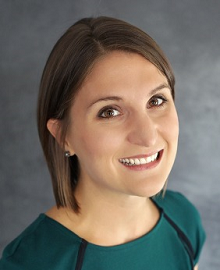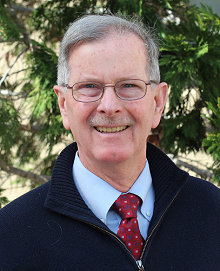
Dr. Leah Wood
Leah Wood is an Assistant Professor at California Polytechnic State University at San Luis Obispo. Dr. Wood earned her Ph.D. from UNC Charlotte in 2014 in Special Education with an emphasis on moderate and severe disabilities. She is a Board Certified Behavior Analyst and specializes in the application of systematic instruction to teach academic content and skills to students with intellectual disability and autism spectrum disorder. As a classroom teacher, Dr. Wood taught students with mild to severe intellectual disability for six years. As the lead Graduate Research Assistant for the GoTalk Phonics IES grant, and coauthor of the Early Reading Skills Builder curriculum, Dr. Wood has contributed to research studies across a variety of paradigms (i.e. single case, randomized control, qualitative). At Cal Poly, Dr. Wood has particularly enjoyed teaching about single case design research and evidence-based practices. In her own research, Dr. Wood is examining academic interventions for students with developmental disabilities, both with and without the application of technology. Specifically, she has developed interventions intended to promote comprehension of text across content and formats.

Dr. Stephen Crutchfield
Stephen Crutchfield is an Assistant Professor at California Polytechnic State University at San Luis Obispo. Dr. Crutchfield received his PhD from the University of Kansas in June of 2014, with an emphasis in Autism Spectrum Disorders. After graduating, Dr. Crutchfield spent a year as an Institution of Education Sciences postdoctoral research fellow at the Juniper Gardens Children’s Project in Kansas City, Kansas.
Prior to pursuing graduate degrees at the University of Kansas, Dr. Crutchfield was a classroom teacher in the urban core of Kansas City, Missouri. Dr. Crutchfield’s current research examines how emerging technology can be leveraged to improve social skill and adaptive skill outcomes for young children and youth with autism both in and outside the classroom. Specifically, Dr. Crutchfield is interested in investigating the effects of location dependent coaching and monitoring systems for young children and youth with autism by utilizing available location tracking technology (e.g., GPS, indoor location systems) to provide these individuals with contextualized prompts and coaching sequences, delivered on smartphones in the natural environment.

Dr. Michael B. Ruef
Dr. Michael (Mike) B. Ruef is a Professor in the Special Education Program at Cal Poly, San Luis Obispo. Dr. Ruef holds a BA degree in English from the University of San Francisco, an MA in Education (Special Education) from San Diego State University, and a PhD in Special Education from the University of Kansas. He began his educational career teaching high school English/Journalism and transitioned eight years later to teaching students with intellectual disability. Dr. Ruef also spent eight years teaching in Germany. At Cal Poly, he coordinates the Special Education Program and teaches courses in autism and mild disabilities, research design, positive behavior support, and transition.
Dr Ruef has held staff and research positions at Kansas University’s Beach Center on Families and Disability and at the Kansas State Department of Education. While at the Beach Center, he worked on several federal grants including the NIDRR funded Rehabilitation, Research, and Training Center (RRTC) on Positive Behavioral Support. Dr. Ruef served as the dissemination director of that project and also served as a member of the Kansas State Training Team on Positive Behavioral Support.
After moving to San Luis Obispo, Dr. Ruef has been involved with a number of family agencies, serving on the boards of the Team of Advocates for Special Kids (T.A.S.K.), a federally funded parent information and training center, and of the Central Coast Autism Spectrum Center.
His dissertation entitled, The perspectives of six stakeholder groups on the challenging behavior of individuals with mental retardation and/or autism, identifies the themes (autism, positive behavioral support, family support) that have marked his well published work over the years. His interests in family support and positive behavioral support have an international dimension. In addition to publications in Exceptional Children, Teaching Exceptional Children, The Journal of Positive Behavioral Interventions, Mental Retardation and others, Dr. Ruef has authored a book chapter and co-authored articles for peer-reviewed German special education journals. As the brother of woman with a disability, he is committed to conducting research that gives a voice to both families and persons with disabilities. He is equally committed to providing comprehensive lifestyle support for individuals with disabilities and their families.